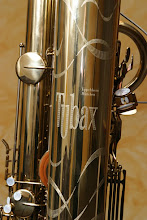Ian Decker
Ms. Johnson
10 IB/ Per 5
5/10/09
Wit: "I also have in my possession... certificates of Miss Cardew's birth, baptism, whooping cough, registration, vaccination, confirmation, and the measles; both the German and the English variety" (Wilde Pg. 178)
"Lady Bracknell: 'After three months her own husband did not know her.' Jack: 'And after six months, nobody knew her.' " (Wilde, Pg. 179)
Absurdity: "I do not propose to undeceive him... I would consider it wrong" (Wilde, Pg. 176)
"I killed Bunbury this afternoon. I mean poor Bunbury died this afternoon" (Wilde, Pg. 176)
Social Conventions: "How absurd to talk of the equality of the sexes" Wilde, Pg. 175)
"This is not the moment of German scepticism" (Wilde, Pg. 174)
In Act III, the uses of wit, absurdity, and social conventions all act together to create humor. Wilde uses wit in order to create a sarcastic mood. He does this by using the snappy comebacks of the character in order to express a dislike for something another character did or said oftentimes in a sarcastic voice. For example, in the first example of wit provided, Jack names off a bunch of papers he supposedly has in order to protest Lady Bracknell's attempt to snoop into the life of his ward, Cecily.
Absurdity is used in a much different way than wit. Wit requires that the reader/playgoer pays attention to what is happening in the story and must think a little bit in order to find it's true hilarity. Absurdity, however is completely random and will usually make no sense, and it is from this lack of sense that the humor is perceived. For example, in the second example of wit provided, Algernon accidentally says that he killed off Bunbury, and Lady Bracknell continues in the conversation without questioning that little slip up. This type of humor allows the brain a break from having to think and because of that will appeal more to the common audience.
The final thing that Wilde uses in order to provide humor is the use of social conventions. He uses little unexpected things that go against what society believes in order to create a humor. For example, in the first example of social conventions provided, Wilde creates humor by pointing out something that happened that is unexpected to people of that society, and in this instance, is the talk of an equality of the sexes, which had just recently been discussed by Cecily and Gwendolen. It is through all these things (wit, absurdity, and social conventions) that Wilde provides much of the humor in not only the third act of this play, but also throughout the entire play. The fact that people living 100+ years after the play was written still find it highly amusing serves as a testament to the genius who wrote it.
Subscribe to:
Post Comments (Atom)

1 comment:
Ian,
I agree with your last statement about how this play's genius lives on even 100 years later. It is the humor that brings the audience in. Excellent quotes to represent wit, absurdity and social conventions. Well written.
-Ms. Johnson
Post a Comment